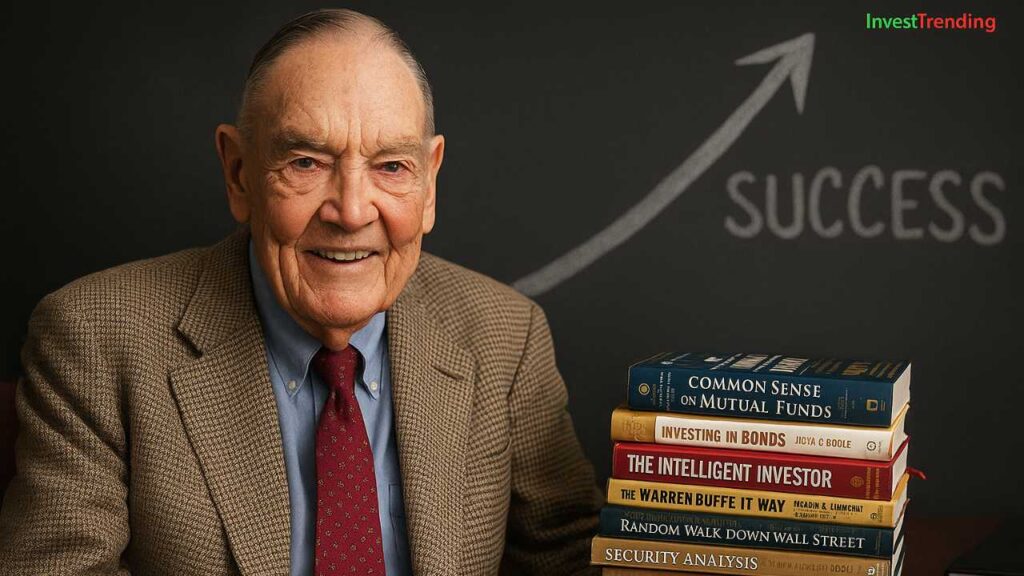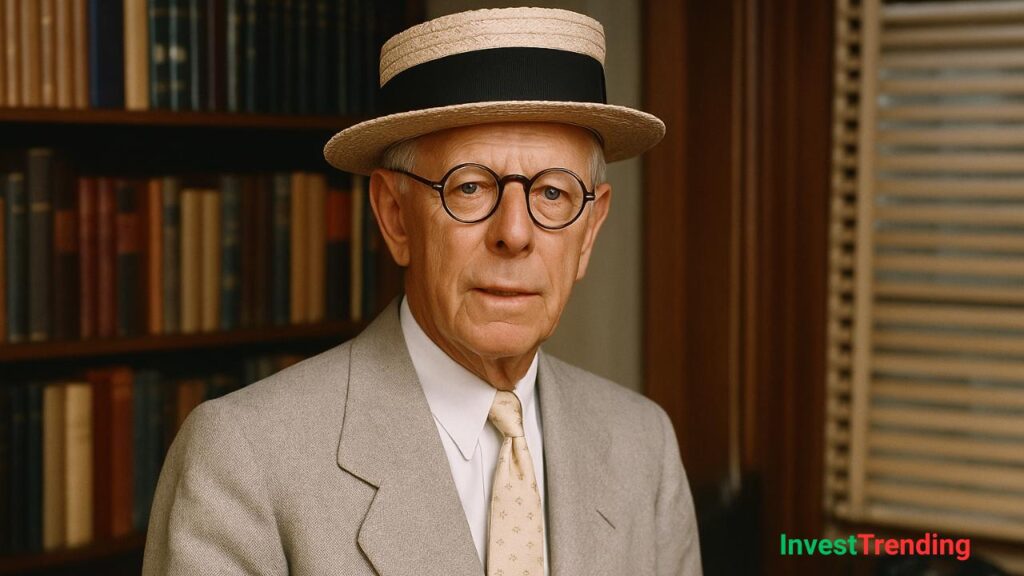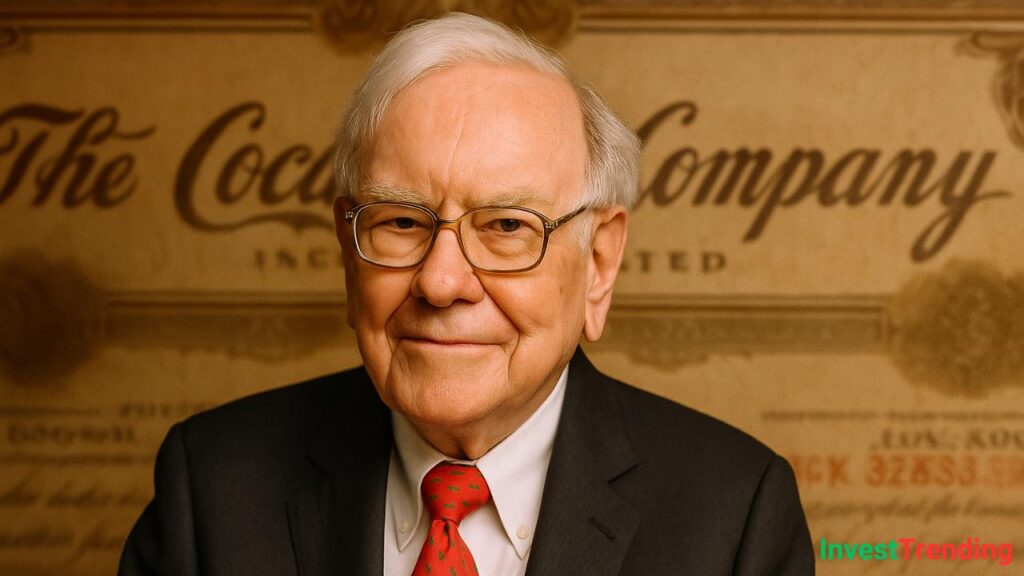
“Don’t look for the needle in the haystack. Just buy the haystack!”
– John Bogle
John Clifton Bogle, often called “Jack” Bogle, was the man who revolutionized investing. He pioneered the concept of index funds, democratizing investing and making it accessible to millions of people. His core philosophy was simple: keep costs low, invest in the entire market, and stay the course.
Before Bogle, Wall Street was dominated by actively managed funds, promising high returns but often failing to beat the market. Bogle proved that passive investing—buying and holding the entire market at a low cost—outperformed most active strategies over time.
His legacy? The creation of Vanguard Group, one of the largest investment firms in the world, and the development of the first index fund for individual investors, the Vanguard 500 Index Fund. Today, index funds dominate the investment world, managing trillions of dollars.
Let’s dive deep into the life of John Bogle, his struggles, victories, and the investment revolution he sparked.
Early Life & Education
A Tough Beginning (1929–1945)
John Bogle was born on May 8, 1929, in Montclair, New Jersey. His early life was challenging—his family lost nearly everything during the Great Depression. His father, who once worked in banking, lost his job and turned to alcoholism, leaving Bogle’s mother to support the family.
Despite financial hardships, Bogle showed academic brilliance. He worked hard in school and excelled in math and economics, laying the foundation for his future career in finance.
Princeton University & His Groundbreaking Thesis (1945–1951)
Bogle attended Princeton University, where he developed a deep interest in investing. His senior thesis, The Economic Role of the Investment Company, argued that mutual funds should focus on low-cost, long-term investing instead of high-cost, actively managed funds.
This thesis was the seed that would later grow into the index fund revolution.
“The stock market is a giant distraction to the business of investing.”
– John Bogle
Entry Into the Investing World (1951–1975)
Starting at Wellington Management
After graduating, Bogle joined the Wellington Management Company in 1951, a well-respected investment firm. He quickly climbed the ranks and became a key player in the company.
A Costly Mistake & His Firing
In 1966, Bogle made a bold decision—he pushed Wellington to merge with another firm that specialized in high-risk active investing. The merger failed miserably, leading to his firing in 1974.
This setback became the turning point in his career. Instead of giving up, Bogle saw an opportunity to reinvent investing.
“In investing, you get what you don’t pay for. Costs matter.”
– John Bogle
Founding of Vanguard (1975–1980)
Why Bogle Created Vanguard
After his firing, Bogle had one last chance to stay in the investment world. He negotiated to remain in charge of the mutual funds division of Wellington, and with this division, he founded Vanguard Group in 1975.
A Radical New Idea: The First Index Fund
In 1976, Bogle launched the world’s first publicly available index fund for individual investors, the Vanguard 500 Index Fund. Instead of trying to beat the market, this fund simply tracked the S&P 500 at a low cost.
At first, it was ridiculed. Wall Street called it “Bogle’s Folly” because it went against the high-fee, actively managed approach that fund managers promoted.
Early Struggles
- The fund failed to attract initial investors, raising only $11 million instead of the targeted $150 million.
- Critics mocked the idea, saying it was “un-American” to settle for average returns.
- Active fund managers dismissed it as a losing strategy.
But Bogle believed in the power of long-term, low-cost investing—and he was right.
“Time is your friend; impulse is your enemy.”
– John Bogle
The Index Fund Revolution (1980–2000)
Winning the Long Game
Despite skepticism, index funds slowly gained popularity. Investors realized that most actively managed funds failed to beat the market after fees were deducted.
By the 1990s, index investing became widely accepted, and Vanguard’s assets exploded into the hundreds of billions.
The Power of Low-Cost Investing
Bogle’s philosophy was simple:
- Lower fees mean higher returns for investors.
- No one can consistently beat the market, so just own the market.
- Long-term investing is key—don’t try to time the market.
This philosophy became the foundation of modern investing.
“Stay the course. No matter what happens, stick to your investment program.”
– John Bogle
Investment Philosophy & Strategies
Bogle’s Core Principles
Bogle preached long-term, low-cost, and disciplined investing. His Golden Rules included:
- Stay the course – Don’t panic during downturns.
- Keep costs low – Avoid high fees and expenses.
- Don’t try to beat the market – Accept market returns.
- Diversify – Invest in the whole market for stability.
- Avoid speculation – Investing should be boring, not exciting.
The Power of Compound Interest
Bogle often spoke about the magic of compound interest—the idea that small, steady gains snowball over decades. His philosophy encouraged ordinary investors to build wealth passively.
“The courage to press on — regardless of whether we face calm seas or rough seas, and especially when the market storms howl around us — is the quintessential attribute of the successful investor.”
– John Bogle
Challenges & Criticism
Despite his success, Bogle faced constant criticism from active fund managers and Wall Street firms, who saw him as a threat to their high-fee business model.
- He was accused of promoting mediocre returns (even though his funds outperformed most actively managed funds).
- Many fund managers hated index funds because they couldn’t make big profits from them.
But Bogle never backed down—he always put investors before profits.
John Bogle’s Legacy & Impact
Where Is Vanguard Today?
- Vanguard is now one of the largest asset managers in the world, managing over $8 trillion.
- Index funds are now the dominant form of investing.
- Passive investing is the gold standard for long-term investors.
Bogle’s Influence on Investors
- His books, speeches, and teachings continue to guide millions of investors.
- Warren Buffett called him “a hero to investors”.
- Even though he passed away in 2019, his philosophy lives on in every index fund investor.
Final Thoughts: Why John Bogle Changed Investing Forever
John Bogle’s story is one of resilience, innovation, and unwavering belief in doing what’s right for investors.
His legacy proves that you don’t need to be a stock-picking genius to build wealth. By simply investing in low-cost index funds and staying invested, anyone can achieve financial success.
Bogle’s message to investors remains timeless:
- “Stay the course.”
- “Buy the haystack, not the needle.”
- “Costs matter.”
Thanks to John Bogle, investing is now simpler, cheaper, and more effective for millions of people worldwide.
The Index Fund Revolution is here to stay. 🚀
Want to Invest Like Bogle? Here’s How
- Open an account with a low-cost broker (Vanguard, Fidelity, Schwab, etc.).
- Buy a broad-market index fund (e.g., S&P 500 ETF).
- Contribute regularly and automatically.
- Ignore market noise and stay invested for decades.
- Reinvest dividends and let compounding work its magic.
That’s the Bogle way—and it works. ✅
“If you have trouble imagining a 20% loss in the stock market, you shouldn’t be in stocks.”
– John Bogle
What Do You Think?
Did John Bogle’s philosophy influence your investment strategy? Let me know in the comments! ⬇️



